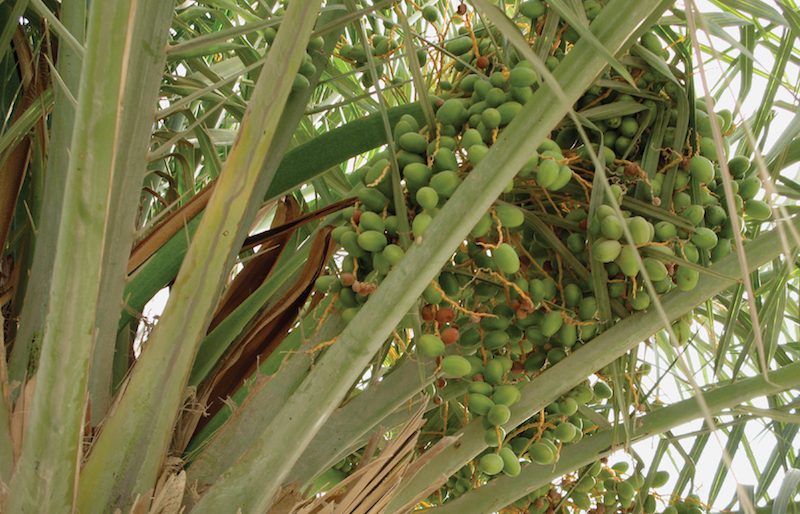There are 700 species of dates in the world, according to Leng Mong Neath, a real estate broker and would-be date farmer. Of these, only about 20 bear edible fruit. And of these 20 edible species, only two can grow in Cambodia.
Neither of these two varieties—known as KL1 and Barhi—produce the sweet, brown sticky fruit used to sweeten pastries and break Ramadan fasts in the Middle East. Cambodia doesn’t get hot enough for that, Mr. Neath said—only temperatures consistently over 41 degrees Celsius can sun-dry dates on the tree.

Instead, the date palms that can grow in Cambodia produce fresh dates—crisp, greenish and far less sweet than their dried Arabian cousins.
But none of this, not least the climate and the fact that he has no previous experience in the agricultural industry, is going to stop Mr. Neath on his quest to become Cambodia’s first successful date farmer. With the world’s largest Muslim-majority nation, Indonesia, lurking just an ocean away, Mr. Neath can practically taste a profit.
“During the Ramadan ceremony you have to eat the date palm fruit,” said Mr. Neath, who studied math and research before earning a masters in public health.
There could also be a market in the health food sector, with benefits ranging from easing diabetes and lowering the risk of heart disease to improving sexual prowess, Mr. Neath said.
While it might seem like a foolhardy business idea to some, Mr. Neath claims to have already come to an agreement with a few businessmen in Indonesia, home to more than 200 million Muslims, to buy his product.
Mr. Neath’s past areas of expertise have mainly involved working as a freelance consultant, helping businesses develop policies, as well as carrying out research.
His company, the Oeng Sothy Group, headquartered in an office just off Phnom Penh’s Street 63, previously operated as a real estate business. But Mr. Neath is determined to branch out into dates and grow a large-scale production industry in Cambodia.
This is despite the fact that two or three other companies in Cambodia have tried before him, but none yielded any fruit, he said.
He has met with a number of agricultural businesses in the country in the hope of persuading them to join his enterprise. Mr. Neath said he is also linking up with experts in Thailand, where date growing has proved very fruitful, to help fledgling date farmers in Cambodia find a magic formula.
“I have no experience of agriculture…but every three months, there will be visits with experts from Thailand,” he said. Date “technicians” from Palestine will also be brought in once a year to share their specialist knowledge.
Would-be date farmers will need an initial investment of $4,000 per hectare to buy the palm trees and (related irrigation systems) from Mr. Neath, who said it was cheap compared to the $40,000 per hectare outlay for pepper farming.
Within three years, the farmers should see a return of $30,000 a year, he claimed. These figures are based on selling the dates to Mr. Neath at $3 per kg, which he will then sell on for a profit. Mature date palms produce hundreds of kilograms of fruit in a bumper crop, he said.
The trouble is, only three companies have bitten so far.
Mr. Neath is not the first to hatch ambitious agricultural schemes in Cambodia. Successful attempts include rubber and coffee, introduced from far-off countries and different climates.
A cacao farm is into its fourth year in Ratanakkiri’s Lumphat district. One entrepreneur in Pursat and another in Mondolkiri province persist in planting strawberries at high altitudes.
But what most schemes like this lack is an understanding of how nuanced the field of tropical agriculture is, or which crops can actually grow in Cambodia, said Uk Makara, director of Cambodia’s Agricultural Research and Development Institute.
Agriculture Minister Veng Sakhon said on Wednesday that the ministry depended on the private sector to test new crops.
The institute has figured out the best bet for cash crops in Cambodia is cassava, not strawberries and dates.
“We really appreciate them trying a new thing,” Mr. Makara said. “But they might not make money.”




